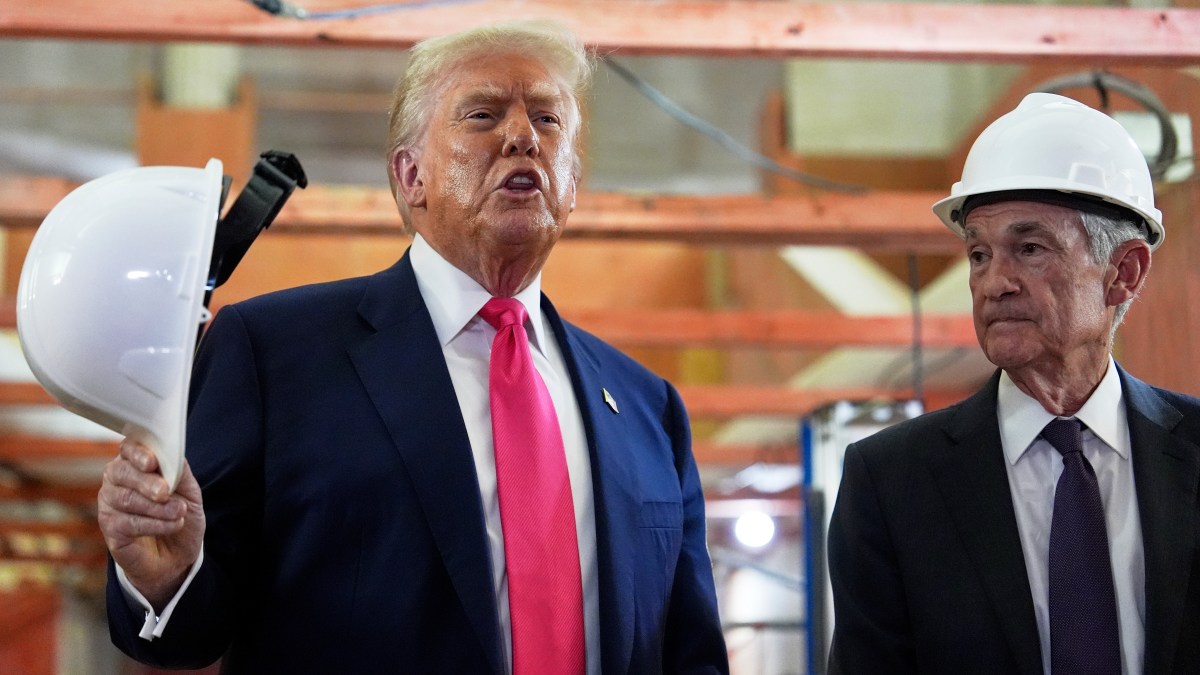President Trump said he would nominate Stephen Miran, chairman of the Council of Economic Advisers, to serve out the final few months of a newly vacant seat at the Federal Reserve while he looks for a permanent addition to its board.
Miran, who has called for a complete overhaul of the Fed’s governance, would take over from Adriana Kugler after her surprise resignation last week, as she returns to her professorship at Georgetown University.
Trump said the White House continued to search for someone to serve in the 14-year Fed board seat that opens on February 1. Trump is also weighing options for a replacement of Jerome Powell, chairman of the central bank, whose term ends in May.
Trump has unsuccessfully pressured Fed policymakers, who include Powell, his six fellow board members and the 12 Fed bank presidents, to cut interest rates. Appointing Miran to the central bank, even in a placeholder role, gives the president a potentially more direct route to pursue his desire for easier monetary policy.
Miran, in a paper published last year by the Manhattan Institute, laid out a case for increasing presidential control of the Fed Board, including by shortening members’ terms. He also wants to end the “revolving door” between the executive branch and the Fed, and nationalise the Fed’s 12 regional banks.
All Fed nominees require Senate confirmation, a process that includes a hearing before the Senate banking committee, a vote from that panel advancing the nomination and a series of floor votes before the full Senate, where Democrats have been slowing the pace of approval for Trump appointments.
“Stephen Miran is a Trump loyalist and one of the chief architects of the president’s chaotic tariff policy that has hurt Americans’ wallets,” Elizabeth Warren, the senior democrat on the Senate committee, said on X after the announcement. “I’ll have tough questions for him about whether he’d serve the American people or merely serve Donald Trump.”
There are just four policy-setting meetings, including one next month, before the end of what would be Miran’s term. Fed policymakers kept the rate in its current 4.25 per cent to 4.50 per cent range at their July meeting, with Powell citing somewhat elevated inflation and the concern that Trump’s tariffs could keep it that way as reasons to keep policy restrictive.
After a government jobs report released last Friday showed far fewer job gains in recent months than earlier estimated, sentiment within the central bank may already be moving toward a rate cut as early as the Fed’s next meeting.
Meanwhile, Trump signed an executive order mandating an investigation into whether banks have discriminated against conservatives and certain industries like gun manufacturers and cryptocurrency companies.
The order deals with an issue known as “debanking,” which is when banks close accounts of individuals or declines to go into business with certain industries. Trump has accused JPMorgan Chase and Bank of America of debanking him and his companies in the past, something both banks have denied.
